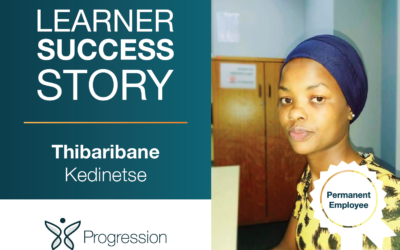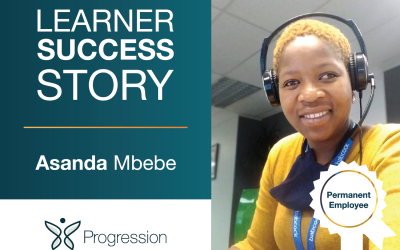Disability-focused learnership can boost BEE scorecard by more than 12% points
10 June 2009 – Companies are potentially losing out on claiming key points on their BEE scorecard, and the opportunity to improve the lives of people less fortunate, by ignoring learnership opportunities for people with disabilities.
“There are just so many positives related to applying this kind of thinking its surprising that not more companies are looking at providing learnerships to people with disabilities,” says Beth Cook, MD of Progression, a specialist provider of services aimed at promoting disability equity in the workplace.
Cook believes there is a real business case for promoting the employment of such persons, particularly as they constitute less than 1% of the country’s workforce even though about 10% of the population are classified as people with disabilities.
“There is a real opportunity, therefore, to create jobs for these people, while simultaneously gaining an advantage on the Broad-based Black Economic Empowerment scorecard front,” she says. “The correct application of the learnership and skills development model, in particular, are mechanisms that companies don’t use often enough.
“They are able to progress on their overall BBBEE rating by implementing some easy and quick interventions,” she says.
Dr Robin Woolley, CEO of Transcend Corporate Advisors, who works closely with Progression in helping companies gain maximum benefit from initiatives such as these, says the easiest way to measure the impact is to look at a hypothetical example.
Therefore, in a 10-person manufacturing business with an annual payroll of R10 million, Woolley demonstrates how the company can score 12.6% on the BBBEE scorecard by simply placing one black female on a disability-focused learnership.
“An immediate return of 6% points is claimed for achieving the learnership target of 5% of total permanent employees, which once adjusted for gender escalates to a 6% weighted point impact on the scorecard,” he explains.
He adds that because the learnership in this case is applied to a person with a disability, that will also count towards the target for disability in the employment equity portion of the scorecard, which is 2% of total permanent employees. Complying with this target adds 2% weighted points.
“Taking this a step further, an additional 3% point impact can be gained on the skills development side if training valued at 0.3% of payroll is undertaken for an employee with a disability. This investment of R80 000 for the year would also contribute to the company’s general skills development for any learnership, and earn it 1.6% points. If the company were to spend 3% of its payroll on skills development for learnerships, it would gain the full 6% points.”
Cook says there is a definite gap in the market pertaining to more efficient management of a company’s employment equity profile.
“What is important here is not trying to score points for the sake of the BBBEE scorecard,” she states. “Not only can you help develop the skills of people who generally struggle to find stable jobs, but you can make a significant contribution to your bottom line and the country’s overall well-being.
“The bottom line impact will be felt through increased compliance with the BBBEE Codes of Good Practice and the associated business opportunities this would open,” Cook concludes.






